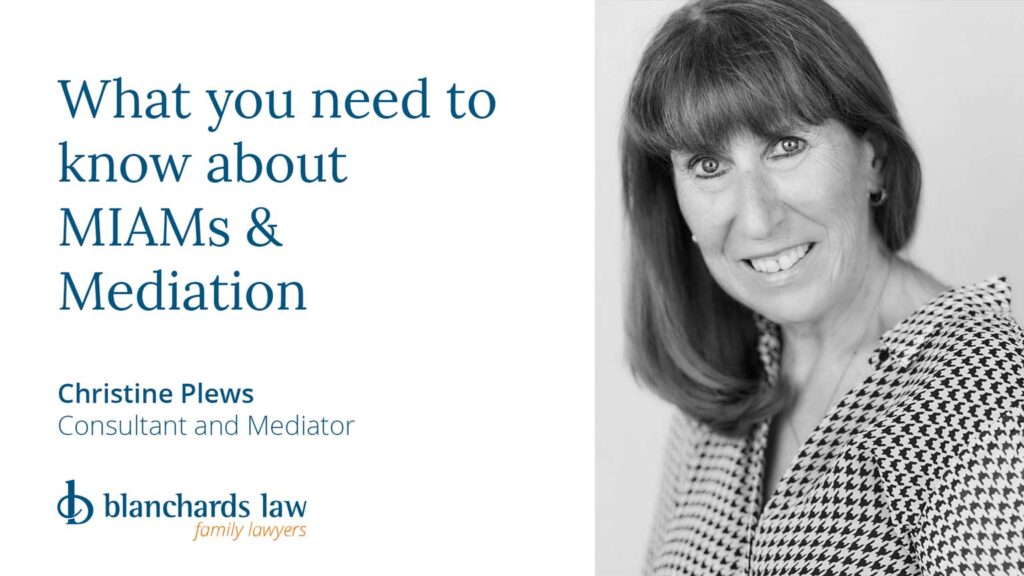Mediation: a robust and flexible system
Mediation is a method of resolving issues outside the court room and the model can be adapted to suit the needs of almost all separating couples
As a mediator, I often hear many reasons why mediation isn’t suitable for a couple.
Most frequently, it is because there is alleged domestic abuse but also if there is a significant power imbalance, it is highly acrimonious or complex or the children live with significant challenges or disabilities.
It is true to say that a very important part of a mediator’s role is to screen potential participants, at the beginning and on an ongoing basis, for domestic abuse. This can involve screening for physical, emotional or financial abuse as an ongoing pattern of this during the relationship can make it almost impossible for the traditional model of mediation to be carried out effectively.
This is also the case where the relationship between the participants is highly acrimonious as the heightened state of emotion and emotional distress can make listening and decision making very difficult.
However, there are certain steps that the mediator can take to enable the participants to enter mediation and complete it successfully. The presence of a friend or family member for each participant or a divorce coach, counsellor or therapist can make the person feel more supported, particularly if there is some kind of mediation preparation. Sometimes, shuttle mediation is suggested, whereby the mediator goes between the rooms, virtual or otherwise, so that the participants do not have to be in the same room as each other, which can be very helpful.

This is also a feature of hybrid mediation, which is a model whereby the mediator has an enhanced role, and the participants can have their lawyers available. The participants often remain in separate rooms with their lawyers and the mediator goes between the two rooms and can hold any confidence that they are told which helps the mediator facilitate the negotiation. The presence of the lawyer means that support and advice can be provided throughout the process as required. Often this type of mediation takes place over one day rather than a series of sessions and can lead to a binding settlement being drafted at the end of the day, thus saving time and money.
Mediators quite often deal with complex cases as they are often experienced and highly qualified family lawyers, who have access to the same expert advice as the court system. Counsel’s (Barrister’s) advice can be taken for both participants on tricky legal issues and accountants, and business valuers, surveyors and pensions experts can be instructed. Meditations involving overseas assets, trusts or business assets are not uncommon as everyone in the mediation can obtain the same information that is available to the court. Often a financial neutral can attend the mediation session to explain documents and advise on the impact of all the reports across the family finances. Tax advice can be commissioned so that the true value of the net assets can be obtained.
Finally, child inclusive mediation (CIM) enables children to let their parents know their views, without the filter of the court or a court appointed expert. This is true even with children who live with significant challenges. Court proceedings are often lengthy and intrusive and can be expensive for parents both financially and emotionally. In CIM the children themselves must consent to their views being shared with their parents and the parents still retain the decision-making role. However, it does mean that they are fully involved in those decisions which affect them, in line with their human right to be consulted. Research shows that this can have a positive impact on their lives.
Everyone would probably agree that there is no such thing as a standard family and if mediation only dealt with standard families then there would be very few mediations carried out! Every family experiences some challenge or difficulty as otherwise, they would not need to seek outside assistance. If you come to mediation, then there is generally a problem to resolve. It can be the nature of the relationship or complicated capital or income arrangements, or personal challenges for the participants or their children. The bespoke nature of mediation means that there is careful consideration at the outset, as to what arrangements give the couple the best chance of success in mediation and these are then adjusted as the mediation progresses. It is a robust and flexible system for resolving disputes arising out of a separation.
Can we help you? Please call us on 0333 344 6302 or contact us through our enquiry form. All initial enquiries are free and without obligation.
"*" indicates required fields
